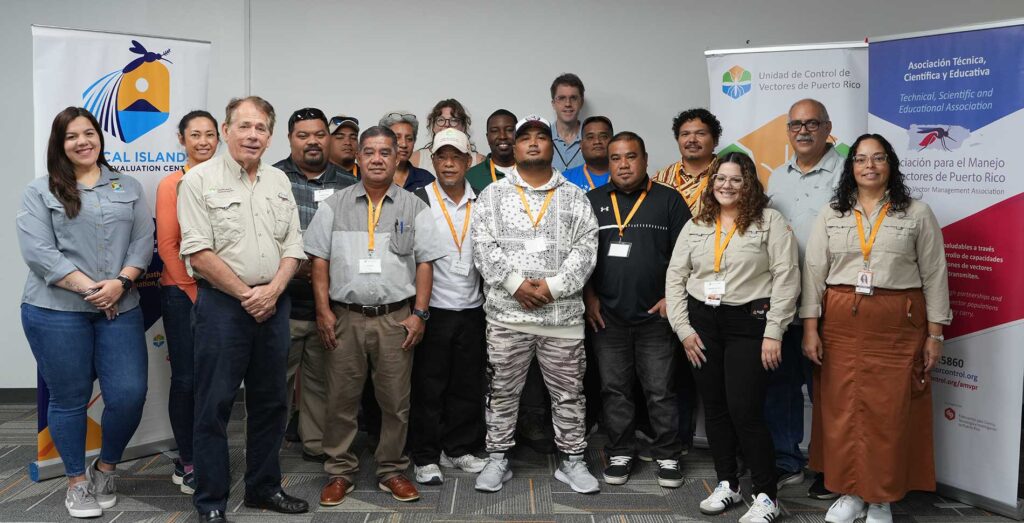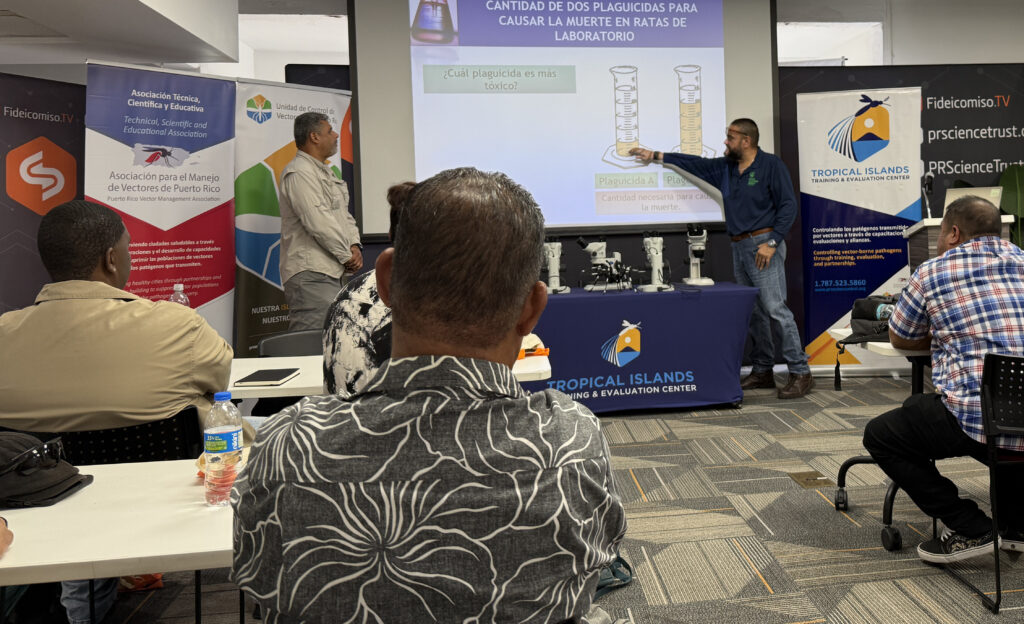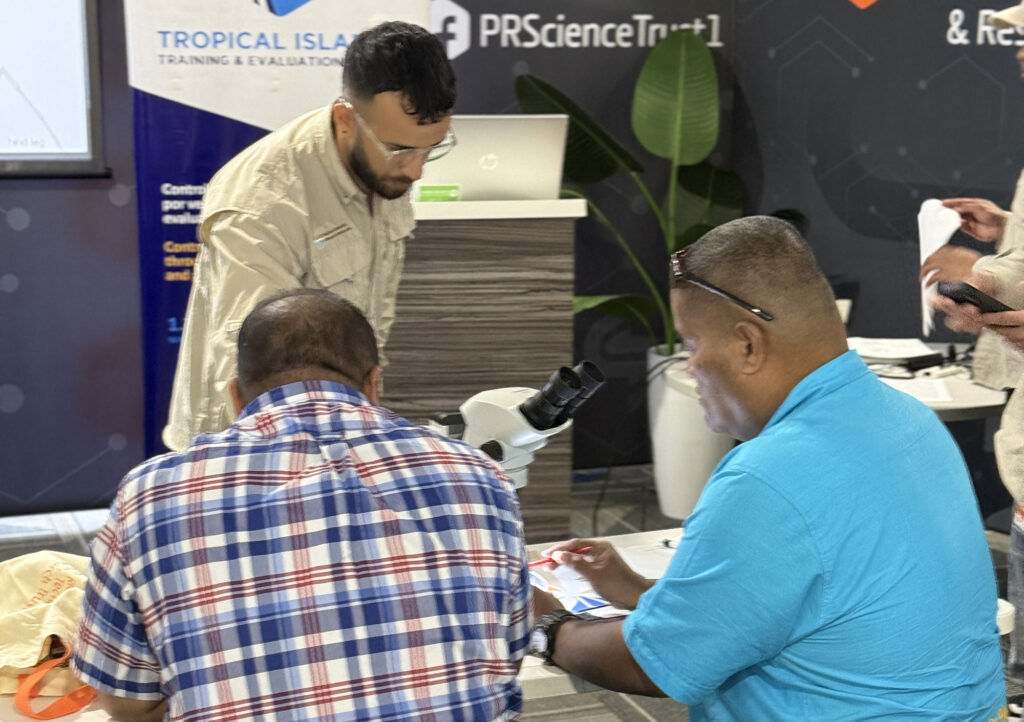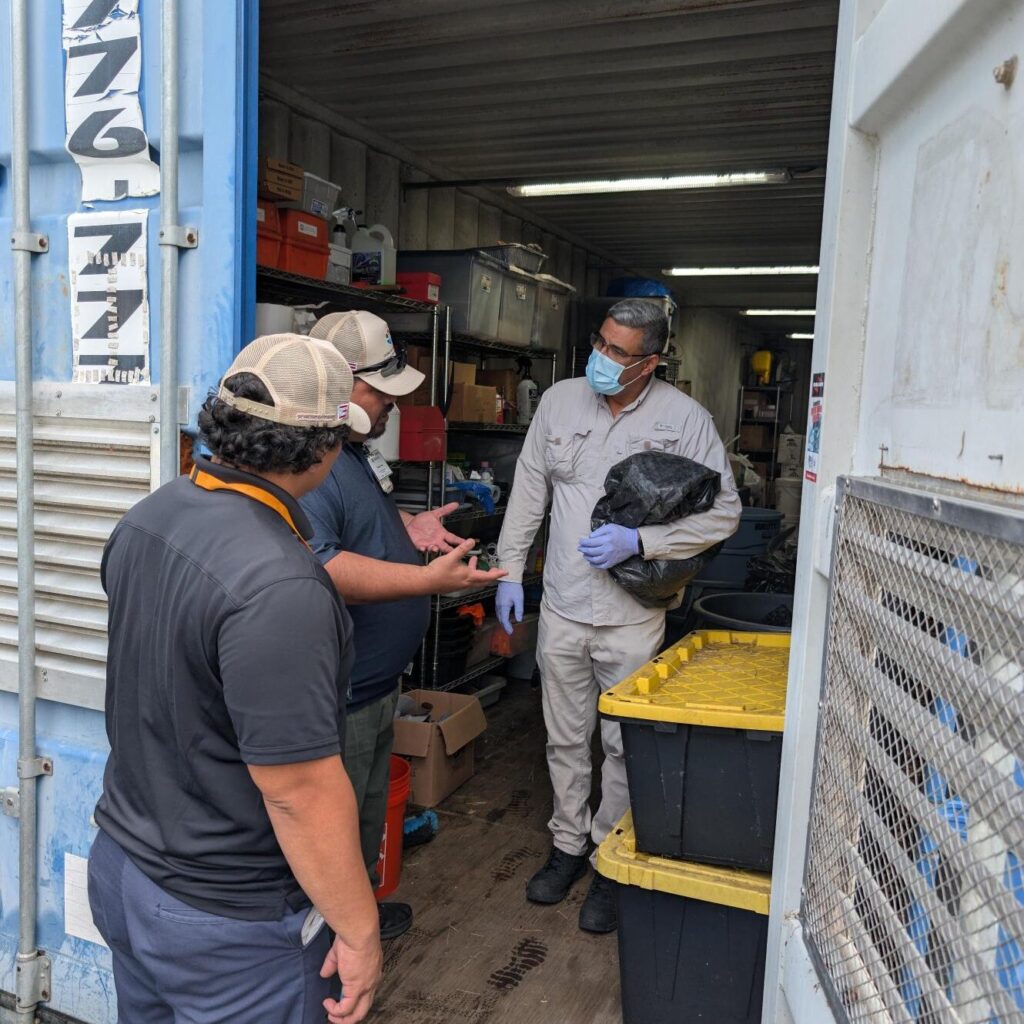
Last week, we had the honor of hosting a comprehensive vector control training in Puerto Rico, welcoming visitors brought by both the Pacific Island Health Officers Association (PIHOA) and the Pacific Southwest Center of Excellence in Vector-Borne diseases (PacVec). Representatives from FSM states (Yap, Chuuk, Pohnpei, Kosrae), Palau, the Republic of the Marshall Islands (RMI), the Commonwealth of the Northern Mariana Islands (CNMI), and the U.S. Virgin Islands (USVI), participated. This week-long program covered essential topics in mosquito surveillance, control strategies, and community engagement, equipping participants with valuable skills to enhance public health efforts.
The training featured sessions on the biology and ecology of Aedes aegypti, innovative mosquito control technologies like passive emanators, and GIS mapping for surveillance. Hands-on field exercises, including emanators field practice and molecular laboratory techniques, provided practical experience in identifying and managing mosquito populations.
Community engagement was a key focus, with discussions on communication strategies in Puerto Rico regarding vector control efforts. Participants also explored challenges posed by other disease-carrying vectors, reinforcing the need for a well-rounded public health approach.
By the end of the training, attendees gained critical insights into vector management operations, participated in table-top exercises, and strengthened regional collaboration. We are proud to have worked alongside PIHOA and PacVec to facilitate this exchange of knowledge and best practices, supporting public health initiatives across the Pacific and the Caribbean.


